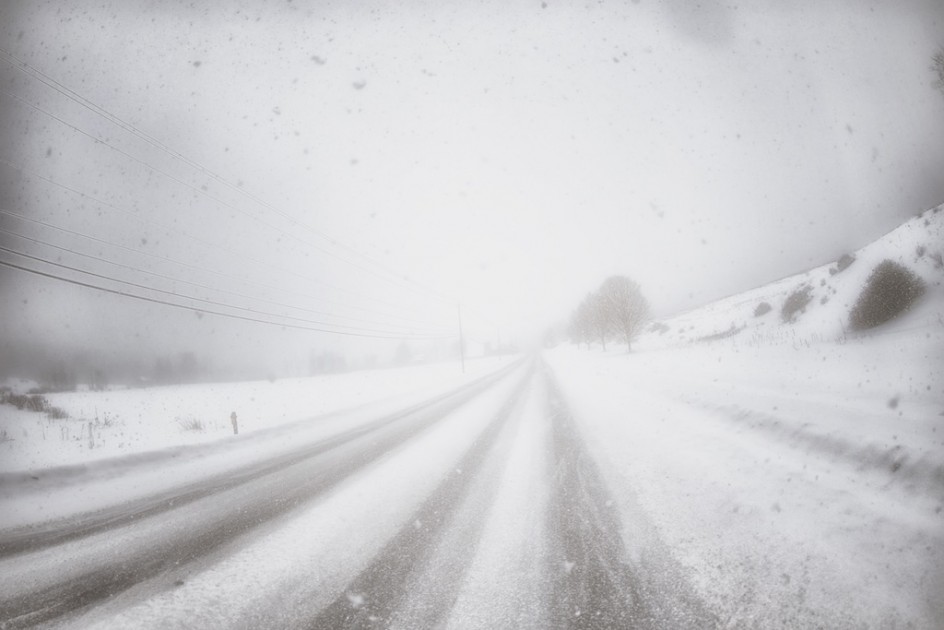
The weather channel has taken to giving winter storms ungainly Roman names, I decided today to call this “Dostoyevsky’s Winter.” I have a muse for my winter now, an inspiration and I confess that I needed one. This is a Russian winter, made famous by the great novelists of Russia, today, frigid air from Siberia swept over the farm with howling winds and brutal temperatures.
I am of Russian descent, and I remember reading about the great Russian winters in Dostoyevsky’s novels (“Crime and Punishment”) and novellas and short stories. I also remember hearing about them from my grandmother, who told me stories of starvation and trial, of seeing her brother pulled off a sled by wolves and taken away in front of her. She searched for him for many months, she never found a trace of him.
She and her brother had set out looking for food in a great and unrelenting Russian winter, there was none in their village.
We are in a great Russian winter, even the air is coming from there. Our winter is filled with challenge and discontent, exhaustion and discomfort, hard work and some anxiety.
No one has been comfortable for months, the sheep and the donkeys gather at the gate and call out to us, they cannot walk on the freezing ground even their stubble of a pasture is buried in many feet of snow. We have lost three animals here – Simon, Frieda and Lenore – and the bitter cold may have weakened them, even driven them to fatigue and resignation.
Grief and discomfort are a potent brew, especially when mixed with grey days, snow and wind. Every day we scrape snow off of rooftops, shovel snow we shoved just the day before, scrape the ice off of the cars, clean out the frozen manure from the barn, take water to the chickens, who cannot get out of their roots. We are tired, we feel confined, we suffer from the loss of color and light.
The great Russian winters were marathons, tests of endurance, they brought sorrow, loss, grief and great collisions between people and Mother Earth. People died, were depressed, found their own strength and determination. To get in sync with winter, it might be worthwhile to read Dostoyevsky, his writing explored human nature in the troubled political and spiritual drama that was 19th-century Russia, home of the great and wrenching winters.
“The darker the night, the brighter the stars, the deeper the grief, the closer is God!”, wrote Dostoyevsky in “Crime And Punishment.” A good anthem for this winter, I thought, it speaks to my heart in this soul-testing February.
Dostoyevsky was sentenced to death for joining a literary discussion group, at the last minute Tsar Nicholas I sent a note to the firing squad, commuting his sentence to four years of hard labor in Siberia. He was stricken with epilepsy there, then forced to serve as a soldier in the Russian army. I stood out on the road today, threw back my hood and opened my face to the awful beauty and cold of the Russian wind, of the Siberian wind. This, I thought, is the air Dostoyevsky breathed, I am connected to him, and he reminds me to embrace my own winter, it will soon be over. He captured it well, I thought, I can breathe it and connect to is.
Just think of it, I thought, 150 years ago, a Russian winter, hard labor in Siberia.
Dostoyevsky said that above all things, people ought not ever lie to themselves. The man who lies to himself and listens to his own lie comes to a point that he cannot distinguish the truth within him, and so loses all respect for himself and for the others. “And having no respect,” he wrote, “he ceases to love.’
He also wrote that taking a new step, uttering a new word, is what people fear the most. New steps, I think, are much more frightening than our Russian winter, and I am committed to taking them on the heels of this winter, and now I have a wise and talented companion.
The Russian winters were very much like our winter this year. They were characterized by endless storms, sub-zero temperatures, relentless winds across the great steppes, months without sun and great suffering and loss. It seemed that life came to an end in the Russian winters, it seems that the world is reborn when they were over.
Winters are, in themselves, a spiritual opportunity. Dostoyevsky helps me make sense of our Russian winter, such a winter will shape our soul and test our strength. And give us great reason to hope, if for no other reason than that they must end.
Love, he wrote, is what saves us.
